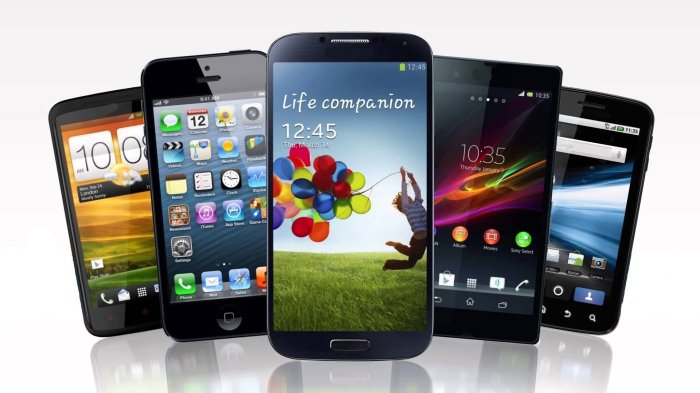Mobiles smartphones have become an indispensable part of modern life, transforming the way we communicate, access information, and interact with the world around us. From humble beginnings as simple cellular devices, smartphones have evolved into sophisticated pocket computers, packed with advanced features and functionalities.
This evolution has been driven by a confluence of technological advancements, including the development of powerful microprocessors, high-resolution displays, and high-speed wireless networks. Smartphones have become ubiquitous, connecting billions of people across the globe and shaping the social, economic, and cultural landscape of the 21st century.
Mobile Marketing: Mobiles Smartphones
Mobile marketing has become an indispensable part of the digital landscape, offering businesses a direct channel to reach their target audience. With the widespread adoption of smartphones and tablets, mobile devices have become the primary touchpoint for consumers, making mobile marketing a crucial strategy for businesses seeking to engage and convert customers.
Mobile Marketing Channels
Mobile marketing encompasses various channels, each with its unique strengths and limitations. Here are some prominent mobile marketing channels:
- SMS Marketing: SMS marketing allows businesses to send short text messages directly to customers’ mobile devices. It is a highly effective channel for time-sensitive promotions, appointment reminders, and delivering personalized messages.
- Email Marketing: While email marketing is not exclusive to mobile devices, it is essential to optimize email campaigns for mobile readability. Mobile-friendly emails ensure that messages are displayed correctly on smaller screens, enhancing user experience and engagement.
- Social Media Marketing: Social media platforms are an integral part of mobile marketing, providing opportunities for businesses to connect with customers, share content, run targeted ads, and build brand awareness. Mobile apps for social media platforms offer seamless access to content and features, enabling users to engage with brands on the go.
- App Advertising: Mobile apps offer a diverse range of advertising formats, including banner ads, interstitial ads, and rewarded video ads. App advertising allows businesses to reach specific audiences based on app usage, demographics, and interests.
Mobile Marketing Strategies, Mobiles smartphones
Effective mobile marketing campaigns require a strategic approach that considers the unique characteristics of the mobile environment. Here are some key strategies:
- Personalization: Mobile marketing allows businesses to personalize messages based on user data, such as location, browsing history, and purchase behavior. This personalization enhances engagement and increases the likelihood of conversions.
- Location-Based Marketing: Mobile devices provide access to real-time location data, enabling businesses to target customers based on their physical location. Location-based marketing can be used to promote nearby stores, offer location-specific deals, and provide directions.
- Mobile-First Design: All marketing materials, including websites, landing pages, and emails, should be designed with mobile devices in mind. This ensures that content is easily accessible and readable on smaller screens.
- Interactive Content: Mobile users are more likely to engage with interactive content, such as quizzes, polls, and games. Interactive content can be used to collect user data, drive engagement, and promote brand awareness.
Closing Summary
The future of smartphones promises even more exciting possibilities, with advancements in artificial intelligence, augmented reality, and wearable technology poised to further blur the lines between the physical and digital worlds. As smartphones continue to evolve, they will undoubtedly play an increasingly significant role in shaping our lives and the future of technology.
Mobile smartphones have become an indispensable part of our lives, connecting us to information and entertainment. The world of mobile operating systems is dominated by Android, a powerful and versatile platform that offers a wide range of customization options. If you’re looking for a phone with a robust and adaptable operating system, consider an androide smartphone.
With its vast app library and open-source nature, Android allows for a personalized mobile experience, making it a popular choice for many users.
 Informatif Berita Informatif Terbaru
Informatif Berita Informatif Terbaru
